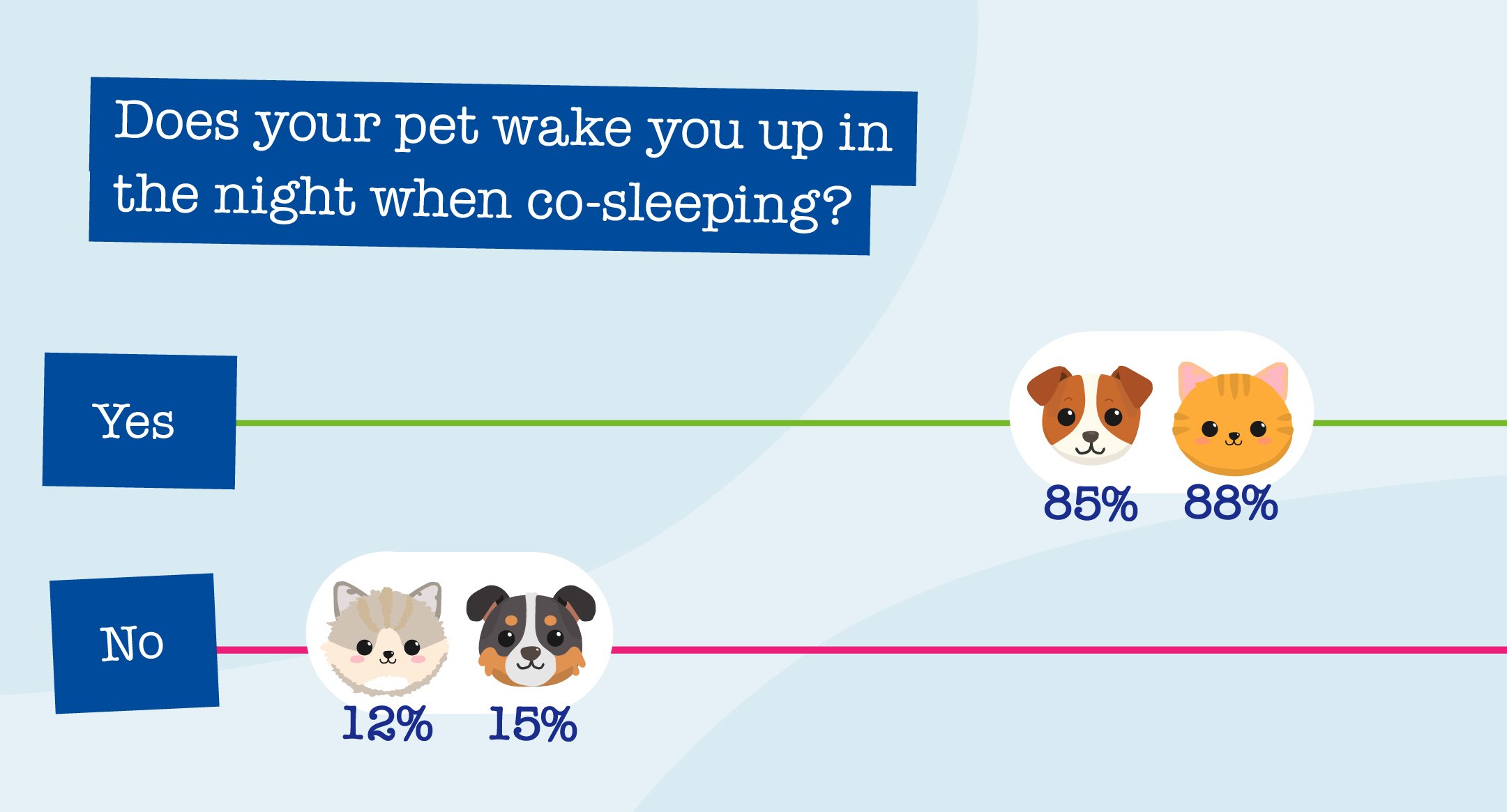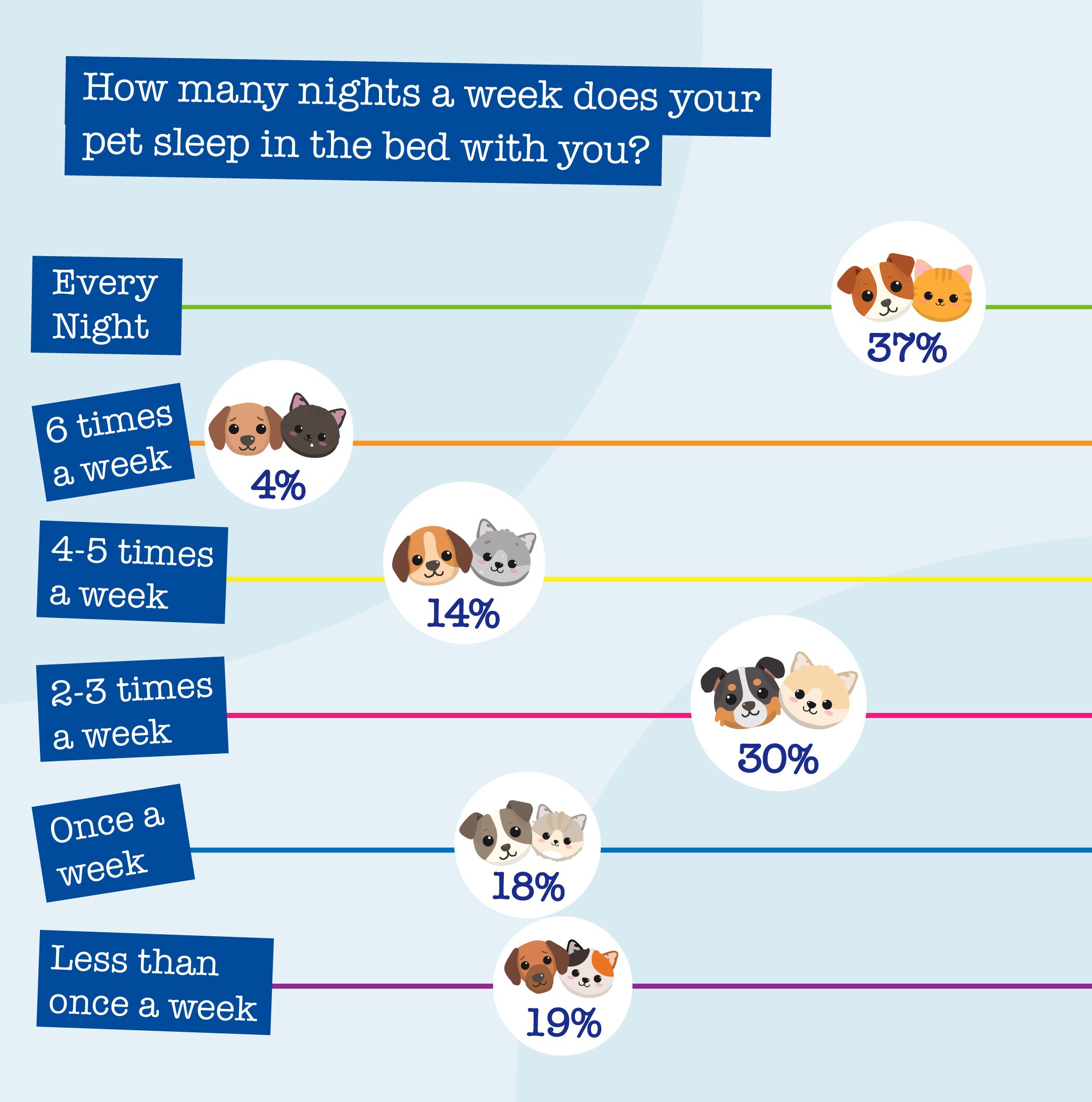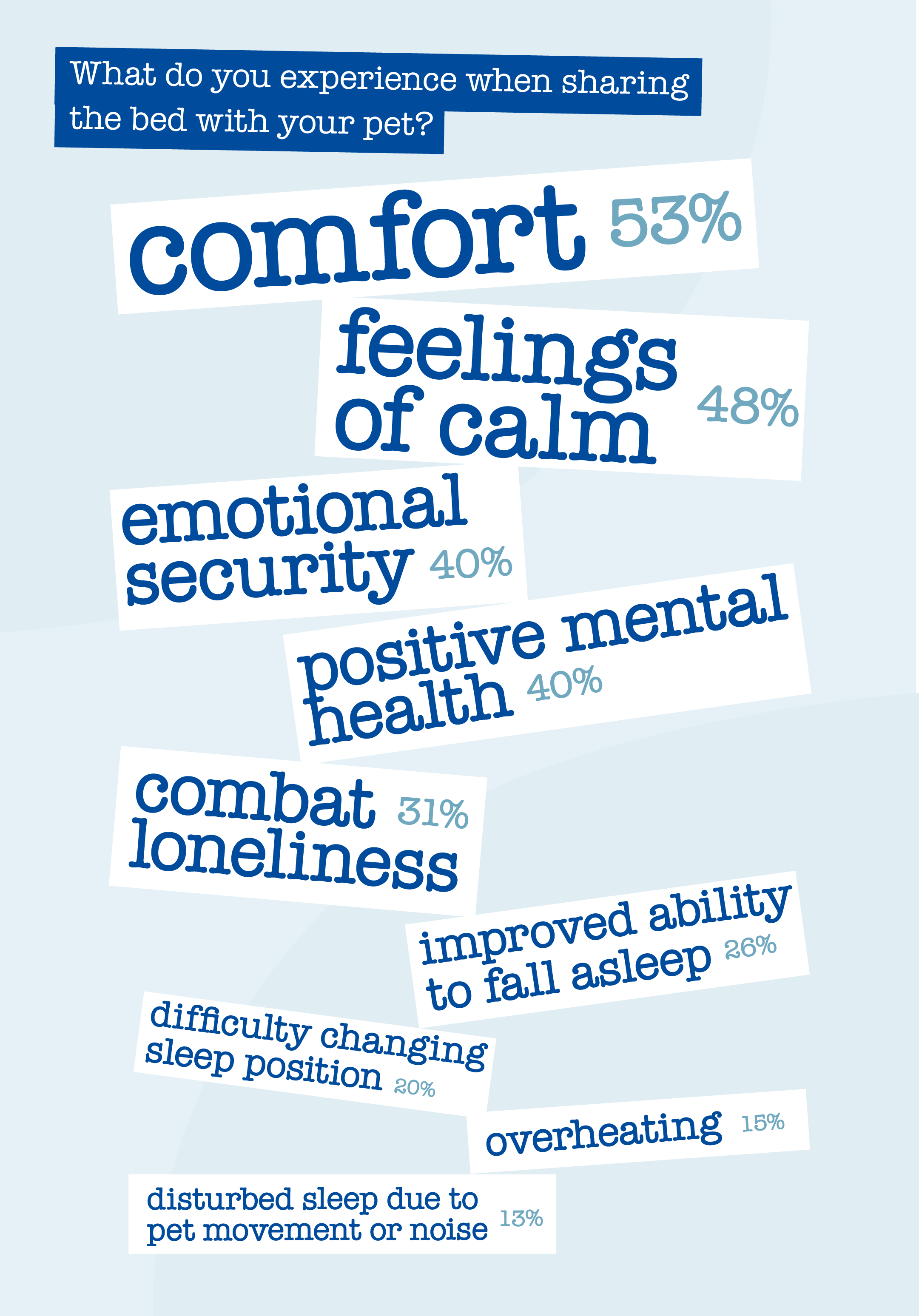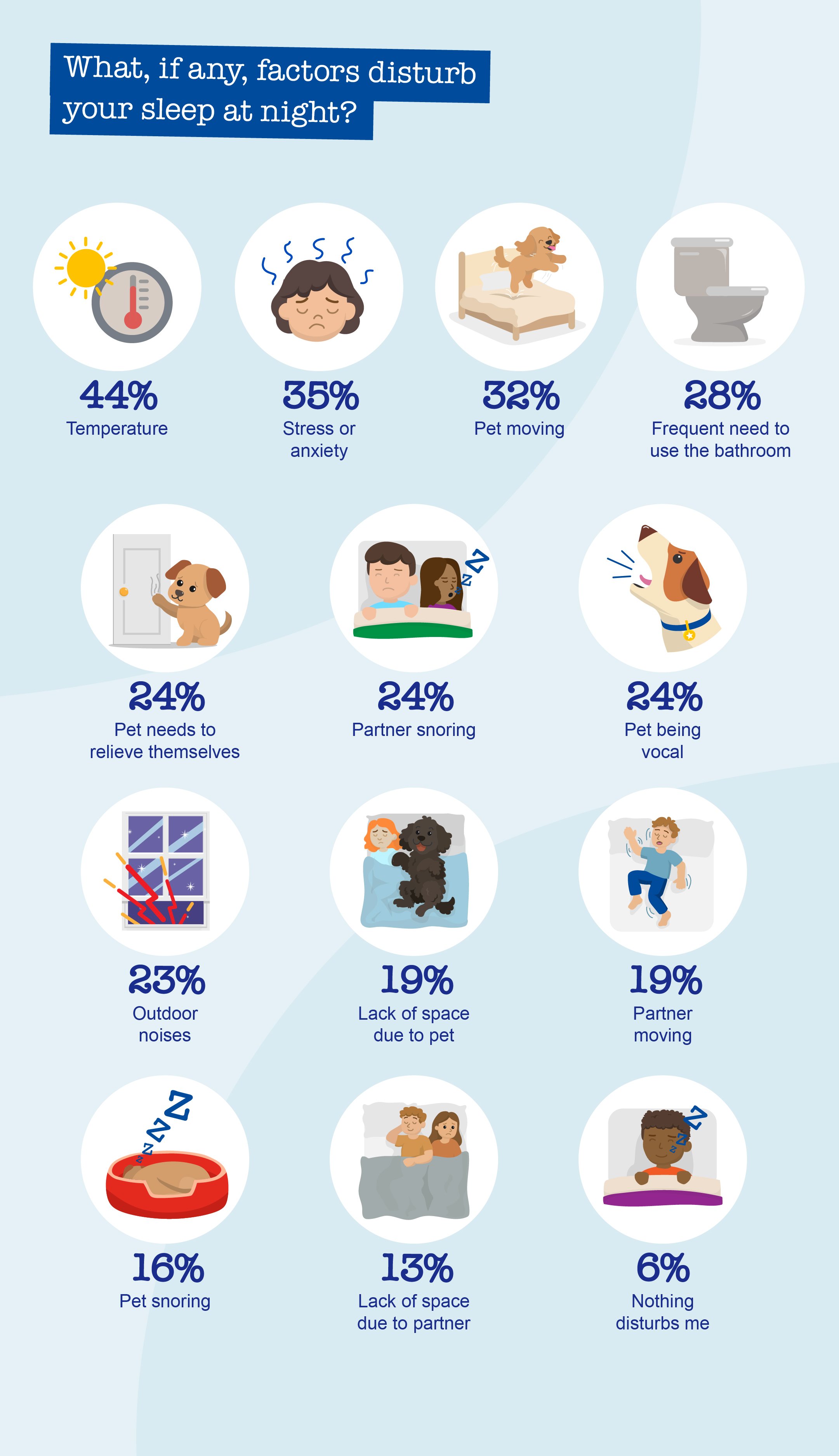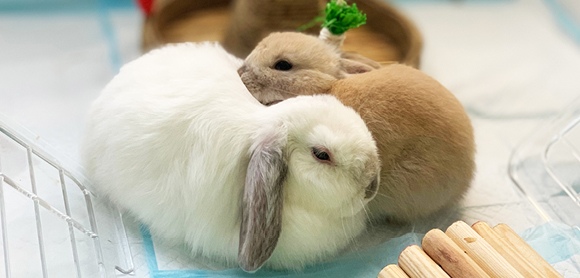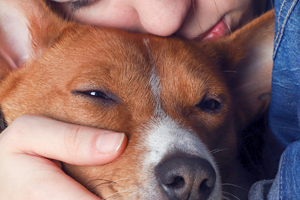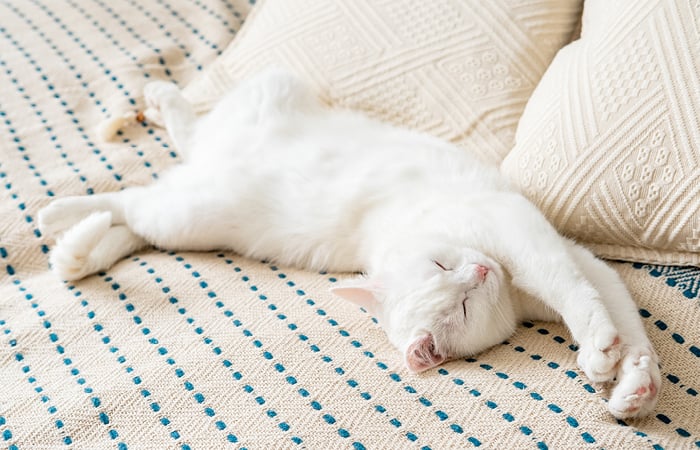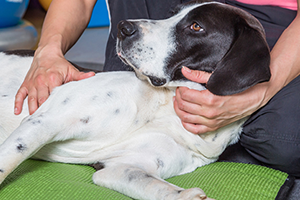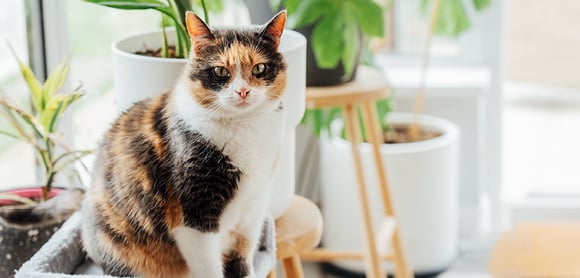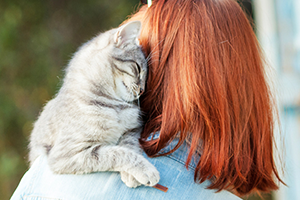Whether we’re having a busy time at work, studying, or managing our relationships, our pets can be massively beneficial for our mental wellbeing.
- Across the generations, respondents aged 16-24-years-old were the most likely age group (56%) to say they experience ‘comfort’ from co-sleeping with pets.
- Meanwhile, those aged 55+ were most likely to cite ‘positive mental health and reducing feelings of anxiety’ (46%) as a reason to co-sleep.
- The South West was the region where pet owners were most likely (50%) to say co-sleeping with their pet is beneficial to their mental health and in reducing anxiety.
Petplan veterinary expert Dr Brian Faulkner shares, “Although a cat's purr is not directly linked to a specific heart rate, its sound has a calming effect that can lower a human's heart rate and blood pressure. When a cat purrs, it can trigger the release of oxytocin – the feel good hormone - in humans, helping boost happiness and reduce stress. This, in turn, can lead to a decrease in cortisol (the stress hormone) and ultimately lower blood pressure and heart rate.
“Co-sleeping with your cat can be comforting for them, offering warmth and a sense of security while strengthening your bond. But as naturally active night-time animals, it’s important they also have their own safe spaces – and so they don’t disturb your own sleep.”
So, while it may be tempting to close the bedroom door, the key is ensuring your pet feels secure and content – whether that’s snuggled up beside you or in a cosy, separate space of their own.
Nick Jones adds, “Co-sleeping with your pet can certainly bring benefits – from strengthening trust and emotional bonds to providing a sense of comfort for both owner and dog. That said, every dog is different, and it's not essential for them to share your bed in order to feel secure.”



